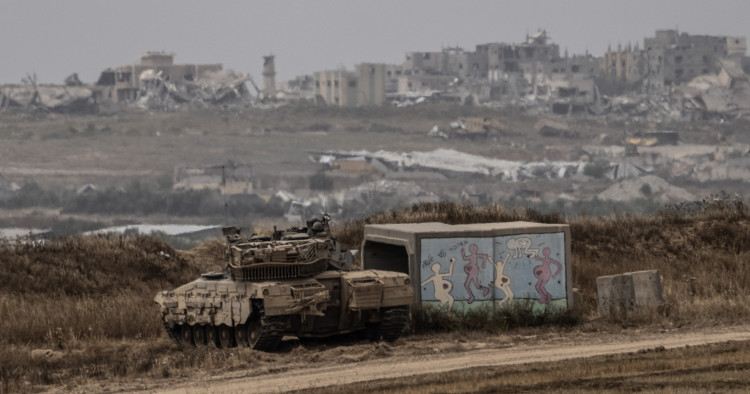The nine-month-long war between Israel and Hamas in the Gaza Strip has devastated the Palestinian economy. According to the World Bank, Gaza’s GDP in the last quarter of 2023—reflecting only the damage wrought by the war’s beginning—was 86 percent lower than it had been in the last quarter of 2022, and food insecurity now affects 95 percent of the strip’s inhabitants. In the West Bank, unemployment surged from 13 percent in the third quarter of 2023 to 32 percent by the end of that year, the highest recorded rate. The ruling Palestinian Authority has been pushed to the brink of outright financial collapse; a June analysis by the International Crisis Group found that its debt to commercial banks and its arrears to its own pension fund has mounted to as much as $11 billion.
When the war began, some analysts predicted that these negative economic effects would ripple throughout the region, driving sharp increases in energy prices and declines in revenue from tourism. But this has not happened. The war has yet to seriously disrupt energy markets, the usual barometer of instability in the Middle East. The ability of the region’s economies to access debt has not widely deteriorated, either: bond issuances in the Middle East and North Africa reached $73 billion in the first half of 2024, an increase of 59 percent from the same period in 2023. Not surprisingly, Saudi Arabia accounted for 49 percent of those bond proceeds, followed by the United Arab Emirates (UAE), with 29 percent, and Qatar, with ten percent.
This stability should not have come as a surprise. The reason it did is that for decades, Washington has mistakenly interpreted the Middle East’s economy as cohesive, fueled by the Gulf’s oil and gas. This view often led U.S. officials to relegate economic diplomacy to the back burner. As the Gulf economies grew, the officials anticipated that the region’s economic health would hinge on local bailouts and investments—an expectation that to some degree bore out after the Arab Spring, when Gulf states vied to rescue Egypt.
Continue reading on Foreign Affairs
Photo by Mostafa Alkharouf/Anadolu via Getty Images
The Middle East Institute (MEI) is an independent, non-partisan, non-for-profit, educational organization. It does not engage in advocacy and its scholars’ opinions are their own. MEI welcomes financial donations, but retains sole editorial control over its work and its publications reflect only the authors’ views. For a listing of MEI donors, please click here.













